zaatari-300x200.jpg" alt="Zaatari, who is the UN’s humanitarian coordinator, said that more than two million people were in a dire need of food in the war-ravaged country. (Photo : MEMO)" width="845" height="563" /> Zaatari, who is the UN’s humanitarian coordinator, said that more than two million people were in a dire need of food in the war-ravaged country. (Photo : MEMO)
Tripoli, 25 Jumadil Awal 1437/3 March 2016 (MINA) – Foreign military intervention in Libya will only exacerbate the war-torn country’s already dire humanitarian crisis, according to UN deputy envoy to Libya Ali al-Zaatari.
In an exclusive interview with Anadolu Agency, Zaatari said that the Libyan crisis appeared to be worsening.
“Any military intervention or internal fighting inside Libyan territory will exacerbate the humanitarian situation there; this means more displacement and more destruction,” he said.
Zaatari, who is the UN’s humanitarian coordinator, said that more than two million people were in a dire need of food in the war-ravaged country.
Also Read: Global Movement to Gaza to Hold Coordinated Rallies in 13 Cities on International Day of Solidarity
“There are 435,000 displaced [people] inside Libya and 250,000 mostly immigrants or refugees from surrounding countries, along with more than 2,400,000 people who need food and health care,” he asserted.
The UN official went on to say that between 650,000 and 850,000 Libyans are in need of drinking water and sanitation services.
“There is a worsening humanitarian crisis, particularly in the province of Benghazi,” he said.
Zaatari said that a lack of financial resources was hindering efforts to dispatch humanitarian aid to Libya.
Also Read: Russia Warns Trump’s Gaza Plan Could Enable “Uncontrolled Experiments” on Occupied Territory
“How can we act in a financial situation in which we received only $4.4 million when the required amount is about $166 million,” he asked.
“The demands are growing and funding is scarce, which inevitably means there will be more human suffering in Libya,” he warned.
Libya has remained in a state of turmoil since 2011, when a bloody rebellion ended with the ouster and death of longtime strongman Muammar Gaddafi.
Since then, the country’s stark political divisions have yielded two rival seats of government, one in Tobruk and one in capital Tripoli, each of which has its own military capacity and legislative assembly.
Also Read: Activist Unfurls Palestinian Flag During German Parliament Session, Protesting Gaza Policy
Zaatari warned that any military intervention in Libya would only trigger more displacement in the troubled country.
“It is obvious that any military intervention… will have negative consequences for the Libyan people,” the UN official said.
“The urgent issue now is to quickly address the humanitarian crisis in Libya,” he added.
Also Read: Hundreds Rally in Stockholm to Condemn Israeli Attacks and Ceasefire Violations in Gaza
Fears have been growing recently of possible western military intervention against Libya-based militant groups.
Last month, a U.S. drone struck a Daesh training camp in western Libya.
Turkish aid
As for Turkish assistance to the Libyan people, the UN official praised the role played by Ankara in addressing the humanitarian situation there.
Also Read: Mass Protests Erupt in Bologna Against Israeli Teams Ahead of EuroLeague Match
“I thank the Turkish government for the humanitarian assistance it provides to Libya,” he said.
“I hope Turkey will play a role in supporting the [UN] humanitarian response plan [for Libya],” he said, going on to call on the international community to provide funds to help tackle the dire humanitarian situation.
Zaatari voiced fear that humanitarian relief efforts in Libya may grind to a halt within two months due to a lack of adequate resources.
“In a month, or two at the most, we may have to stop humanitarian work in Libya because until now we don’t have the resources,” he said.
Also Read: Finland’s Largest Retailer Halts Israeli Product Sales
The UN envoy went on to voice hope that Libya’s rival political camps would soon agree to a proposed unity government with a view to addressing the country’s humanitarian needs.
“A national unity government is necessary to rescue Libya and end the country’s political fragmentation,” he said.
Last week, Libya’s Tobruk-based parliament postponed a scheduled confidence vote on a proposed cabinet lineup for a UN-backed unity government.
In January, the same assembly rejected a first cabinet lineup proposed by Fayez al-Sarraj, the unity government’s prime minister-designate and a former member of the Tripoli-based parliament. (T/P002)/R07
Also Read: 1,000th Western Military Supply Plane Lands in Israel Since Gaza War
Mi’raj Islamic News Agency (MINA)






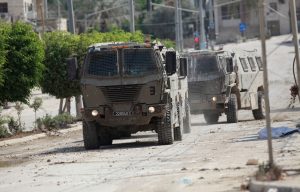

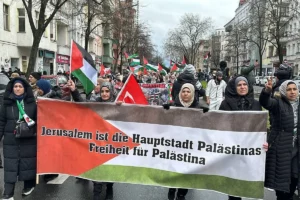

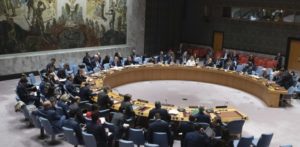

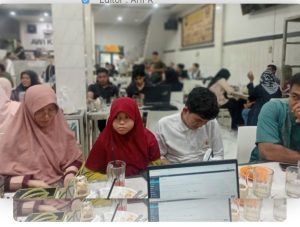
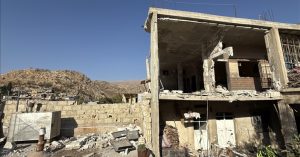



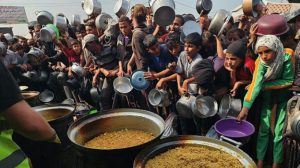















 Mina Indonesia
Mina Indonesia Mina Arabic
Mina Arabic